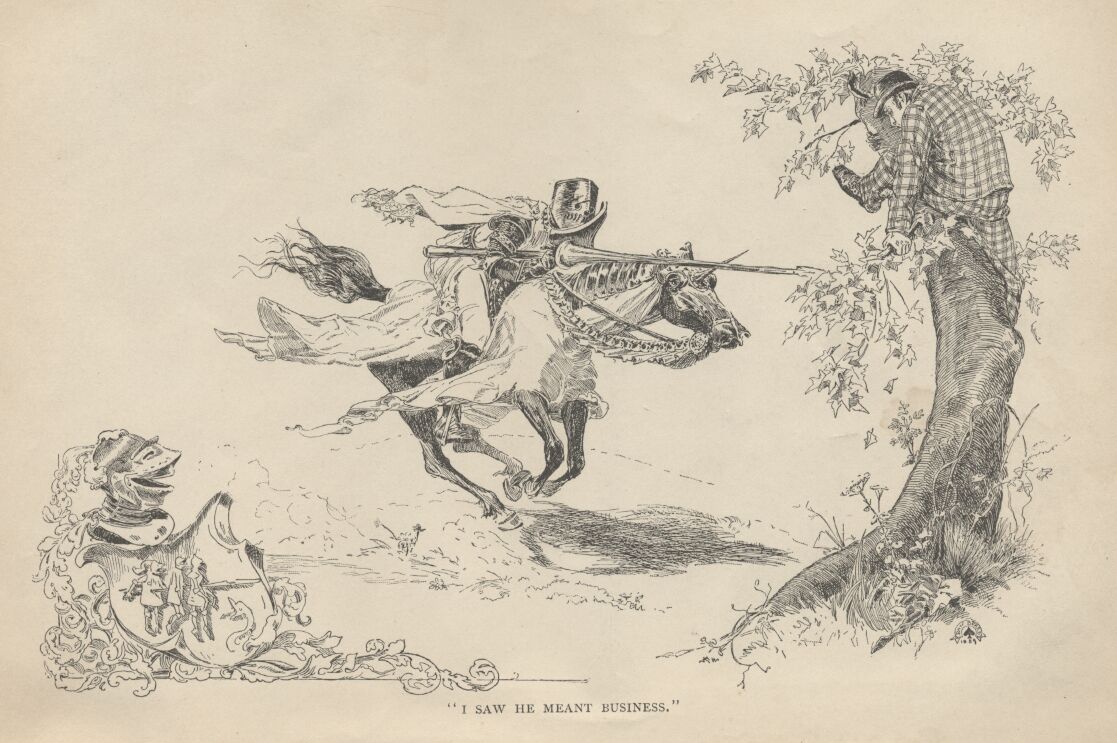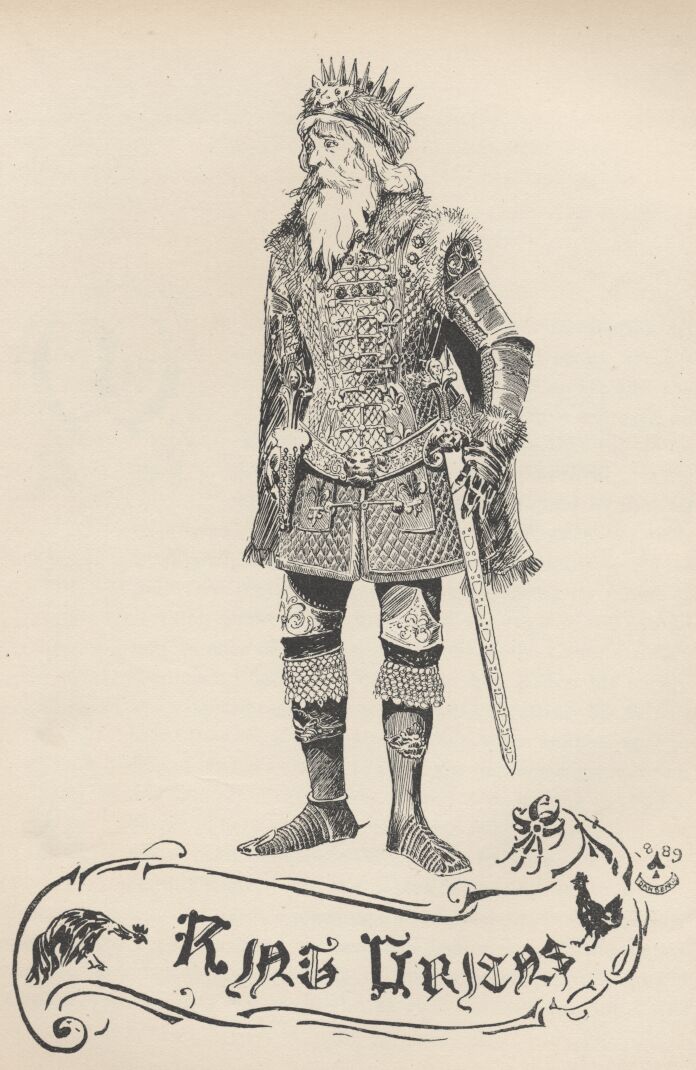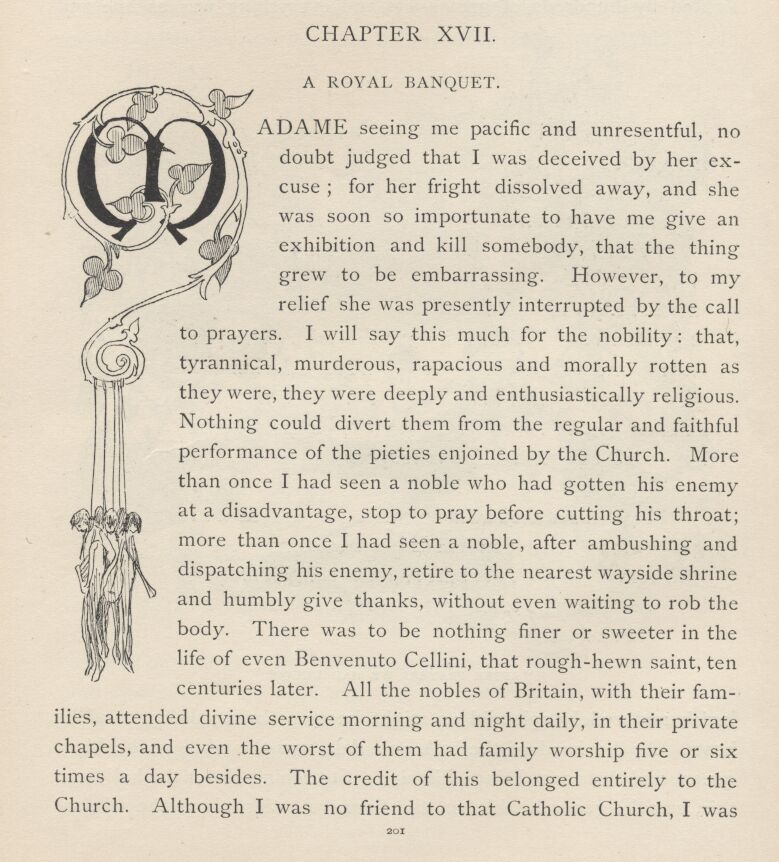


A CONNECTICUT YANKEE
IN KING ARTHUR'S COURT
by
MARK TWAIN
(Samuel L. Clemens)
Part 4.
CONTENTS:
| CHAPTER XVII. | A ROYAL BANQUET |
| CHAPTER XVIII. | IN THE QUEEN'S DUNGEONS |
| CHAPTER XIX. | KNIGHT ERRANTRY AS A TRADE |
| CHAPTER XX. | THE OGRE'S CASTLE |
| CHAPTER XXI. | THE PILGRIMS |
| CHAPTER XXII. | THE HOLY FOUNTAIN |

CHAPTER XVII

A ROYAL BANQUET
Madame, seeing me pacific and unresentful, no doubt judged thatI was deceived by her excuse; for her fright dissolved away, andshe was soon so importunate to have me give an exhibition and killsomebody, that the thing grew to be embarrassing. However, to myrelief she was presently interrupted by the call to prayers. I willsay this much for the nobility: that, tyrannical, murderous,rapacious, and morally rotten as they were, they were deeply andenthusiastically religious. Nothing could divert them from theregular and faithful performance of the pieties enjoined by theChurch. More than once I had seen a noble who had gotten hisenemy at a disadvantage, stop to pray before cutting his throat;more than once I had seen a noble, after ambushing and despatchinghis enemy, retire to the nearest wayside shrine and humbly givethanks, without even waiting to rob the body. There was to benothing finer or sweeter in the life of even Benvenuto Cellini,that rough-hewn saint, ten centuries later. All the nobles ofBritain, with their families, attended divine service morning andnight daily, in their private chapels, and even the worst of themhad family worship five or six times a day besides. The creditof this belonged entirely to the Church. Although I was no friendto that Catholic Church, I was ob